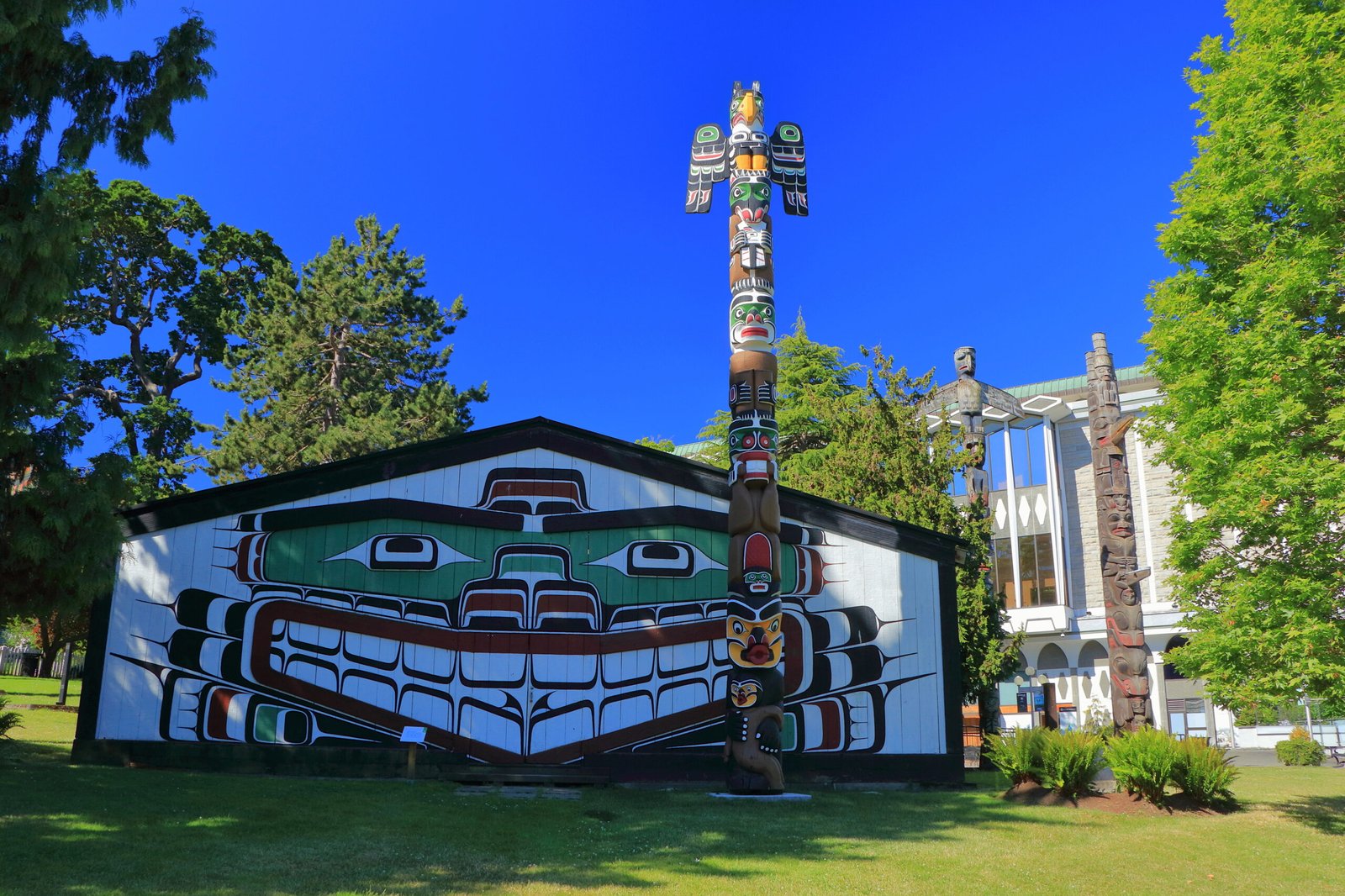
In the dense and often impenetrable forests of the Pacific Northwest, a figure looms large in the folklore of the Kwakwaka’wakw (pronounced kwah-kwah-kah-wahk) people: the Kâ’kwâkâ’kwaskî (pronounced Kah-kwah-kah-kwah-skee), more commonly known as Bukwas.
This creature, often referred to as the Wild Man of the Woods, embodies the mystery and danger of the wilderness. With tales of sightings and encounters dating back centuries, Bukwas holds a significant place in the cultural and spiritual landscape of the Indigenous peoples of this region.
In this exploration of Bukwas, we will delve into its lore, examine reported sightings, understand its cultural significance, and consider its metaphorical implications, particularly for those venturing into the remote parts of Canada.
Finally, we will discuss precautions and respect for the land that may help avoid encounters with this elusive entity.
Potential Sightings of Bukwas
Though steeped in legend, there have been numerous accounts and alleged sightings of Bukwas over the years.
Witnesses often describe encountering a tall, gaunt figure with a skeletal appearance, haunting the fringes of the forest.
These sightings typically occur at dusk or dawn, times when the forest is cloaked in shadows, adding to the eerie nature of the encounters.
Many stories come from those living near the wild, uncharted territories of British Columbia. Some claim to have seen Bukwas from a distance, moving silently among the trees, while others tell more chilling tales of being watched or even lured deeper into the woods by this spectral figure.
Hunters, campers, and hikers are often the ones who recount these experiences. Some describe an overwhelming feeling of dread and a compelling urge to leave the area immediately.
These accounts, while varied, consistently emphasize the haunting presence and malevolent aura of Bukwas.
Kwakwaka’wakw Beliefs and Bukwas
Bukwas is a central figure in the mythology of the Kwakwaka’wakw people, an Indigenous nation of the Pacific Northwest Coast. The Kwakwaka’wakw have a rich cultural heritage, with Bukwas occupying an important place in their spiritual and oral traditions.
In Kwakwaka’wakw mythology, Bukwas is considered a guardian of the forest spirits and a dweller of the supernatural realm.
He is often associated with the spirits of those who have died, particularly those who met untimely or violent ends.
Bukwas is said to live in the forest and lure lost souls or the unwary into his realm, where they become trapped between the worlds of the living and the dead. This belief underscores the Kwakwaka’wakw view of the forest as a place of both life and danger, where the boundaries between the physical and spiritual worlds are thin.
The stories of Bukwas serve as cautionary tales, warning against venturing into the forest unprepared or disrespecting the natural world. For the Kwakwaka’wakw, these tales reinforce the importance of maintaining a respectful and harmonious relationship with the environment and its spirits.
What It Means for Outdoor Enthusiasts
For those who enjoy camping and exploring the remote parts of Washington State, and British Columbia, the legend of Bukwas serves as a potent reminder of the wilderness’s untamed nature.
The vast forests of British Columbia, with their dense undergrowth and towering trees, can feel both majestic and intimidating. The idea of a supernatural guardian like Bukwas adds a layer of mystique and caution to these wild places.
Campers and hikers are often advised to take several precautions to ensure their safety.
Respect for the environment is paramount.
This includes leaving no trace, avoiding unnecessary disturbances, and being mindful of the natural order. Traditional practices such as making offerings or saying prayers before entering the forest can also be a way to show respect to the spirits that inhabit these lands.
Additionally, practical safety measures are essential.
These include traveling in groups, staying on marked trails, and being well-prepared with supplies and knowledge of the area.
The presence of Bukwas in local lore serves to remind adventurers that the wilderness, while beautiful, is not to be taken lightly.
Metaphorical Significance of Bukwas
Bukwas is more than just a physical entity in Kwakwaka’wakw mythology. He represents deeper metaphorical themes.
One significant interpretation is that Bukwas embodies the fear of the unknown and the unseen dangers lurking in the wilderness. The forest, with its impenetrable darkness and unfamiliar sounds, becomes a place where the boundaries between reality and the supernatural blur.
Furthermore, Bukwas can be seen as a symbol of isolation and the consequences of losing one’s way, both physically and spiritually.
The stories of people being lured by Bukwas reflect the human fear of straying from the path and becoming lost in the wilderness of life.
This metaphor extends to the idea of losing touch with one’s cultural roots and community, a theme that resonates strongly with the Indigenous experience of colonialism and cultural disruption.
In this context, Bukwas also serves as a guardian of tradition, reminding the Kwakwaka’wakw people of the importance of staying connected to their cultural practices and respecting the natural world. The tales of Bukwas are not just about fear but also about reverence for the land and the spiritual forces that inhabit it.
How to Avoid the Wild Man of the Woods
While Bukwas may be a figure of fear and mystery, the lessons embedded in his stories are timeless and universal. To avoid encounters with Bukwas, one must approach the wilderness with respect and humility.
This involves honoring the traditions of the land’s Indigenous peoples, preparing adequately for any journey into the wild, and maintaining a mindful and respectful attitude towards nature.
By acknowledging the cultural significance of Bukwas and understanding the metaphors he represents, we can foster a deeper appreciation for the wisdom and traditions of the Kwakwaka’wakw people.
In doing so, we not only protect ourselves from the dangers of the wilderness but also cultivate a respectful relationship with the natural world and its spiritual guardians. Whether seen as a literal being or a symbolic figure, Bukwas reminds us of the profound and often mysterious connection between humans and the environment.